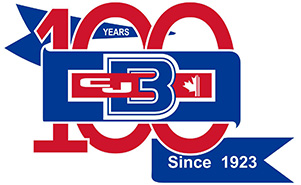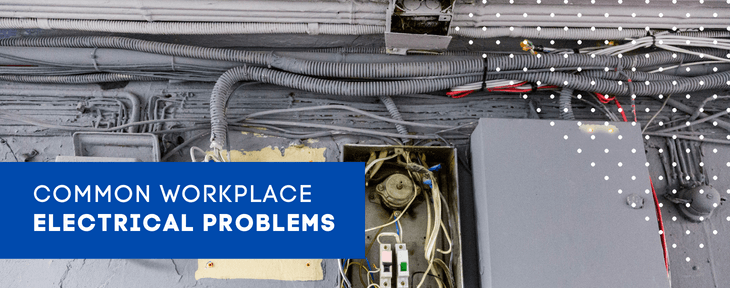Many commercial properties have an onsite maintenance staff. While a trained staff can handle many common issues, only licensed electrical services in Waterloo should inspect or correct electrical systems.
Too many people make the mistake of assuming building wiring is straightforward when it is a complex and potentially dangerous interconnection of circuits. Through the years, codes change and technology develops, resulting in many companies operating with a mix of old and new wiring, which can present challenges and risks to inexperienced, well-meaning onsite staff. Even common problems can become significant risks if a person is not a professional.
Therefore, while the onsite staff is qualified for various tasks, they cannot and should not interfere with a property’s wiring or electrical systems. A licensed electrician is the only professional qualified to handle common and complex electrical system problems.
Understanding 3 Common Electrical Problems
Do not assume that because an electrical issue is common that it is safe for unqualified individuals to correct it. Even the most common problems can have disastrous outcomes when mishandled, such as electrical fires. That said, many commercial facilities experience a few of the same issues, and they should understand those issues, but only to recognize when a professional is necessary.
1. Old Wiring
Commercial facilities may have old wiring stretched throughout the property and connected to newer outlets or circuits. The older wiring is more prone to damage from electrical surges or overloaded circuits. Also, mixing and matching electrical components is never a good idea.
A professional electrician can help companies review their systems and suggest necessary upgrades. Sometimes upgrades are required to meet existing building and safety codes. Businesses must remain compliant with current regulations to maintain operational licenses and insurance.
2. Flickering Lights
Commercial and residential electrical services often assist property owners with flickering lights. Business lights might flicker for many reasons, but the most common are loose connections.
However, flickering lights can also occur because of overloaded circuits or faulty wiring. Each potential issue comes with an escalated sense of urgency.
As much as companies want to save money and subvert certain operational expenses, it is never wise to neglect electrical issues. Contact a licensed electrician to diagnose and resolve flickering lights or other lighting problems.
3. Sparks
Sparks can happen even with healthy electrical systems, but they should not remain persistent. Most sparks will occur around outlets, which often indicates an upgrade is necessary. However, if sparks happen often or employees notice outlets heating up, it is crucial to react. Employers or maintenance staff should cut the main power immediately.
Continuous or frequent sparks and heating outlets represent a significant concern. Fire risks are possible in these situations. Therefore, it is crucial that property owners call a licensed electrical service.
Hiring a Professional To Intervene
Licensed electricians are the only qualified professionals who can work on a building’s electrical systems. They understand building and safety codes and know how to perform electrical work safely.
While onsite maintenance can handle more minor issues, such as swapping out an outlet or replacing a fuse, any situations that require investigating entire systems or wiring require a professional. The risk of electrocution is too great for a novice to attempt system repairs. Also, working with unlicensed repair persons risks the safety of all employees and the business.
Licensed services and technicians have the training and experience to correct various issues, from the common to the complex. If you notice any electrical problems in your building, contact CJ Brubacher Ltd. immediately. The company will send a licensed professional to assess the building’s systems and resolve any existing issues. The technician may also suggest necessary upgrades to ensure the property meets current codes and regulations.

